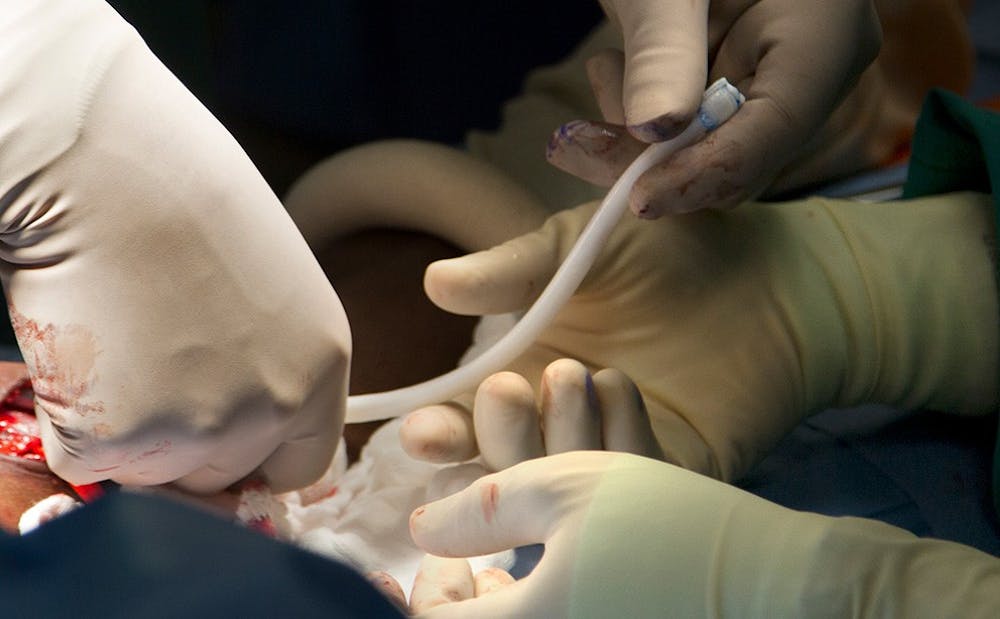A team of researchers from Duke, Yale University and tissue-engineering company Humacyte recently demonstrated the safety and effectiveness of implanting bioengineered blood vessels in patients with kidney failure.
The blood vessels, manufactured by Humacyte, are uniquely developed by growing tissue on biodegradable scaffolds and then washing away the cells—producing vessels that contain no living cells and can be implanted in patients. The researchers tested the vessels in Phase 2 clinical trials and published their findings in The Lancet May 12. They concluded that the Humacyte vessels were safer and more durable in patients with kidney failure than other synthetic blood vessels.
“We take a small section of blood vessels from organ donors and they’re used to make the vascular tube initially on biodegradable scaffolds,” explained Dr. Jeffrey Lawson, professor of surgery and chief medical officer of Humacyte.
Cells isolated from human donors are grown in tissue culture on the scaffolds that provide the structure of blood vessels. The engineered tissue is then “decellularized” by a particular solution, leaving behind the acellular vessels to be implemented, Lawson said.
Because the vessels do not contain living cells, they should not generate an immune response from the patient’s body when implanted, Lawson explained. The study concluded that the patients showed no signs of rejection upon implantation.
Lawson noted that the blood vessels represented a new strategy of making human tissue readily available to patients and “off-the-shelf,” as opposed to current strategies that engineer blood vessels directly from a patient’s own cells but require more waiting time. The vessels are also more easily stored, he said.
“We can store it on site. With living tissue, you’d have to keep it in cultured media right up until you implant it,” he said.
Lawson added that once implanted in the body, the acellular vessels became integrated in that person’s own tissue.
“Over a period of weeks and months, it repopulates with the patient’s own cells, in both humans and animals,” he said.
The research team was led by Lawson and Dr. Laura Niklason, a Duke faculty member from 1998 to 2005 and currently a professor of biomedical engineering and the Nicholas Greene professor of anesthesiology at Yale. Niklason co-founded Humacyte in 2004.
In 2013, Duke doctors, including Lawson, implanted a bioengineered blood vessel into the arm of a kidney dialysis patient—marking the first time such a procedure had been successfully performed in the United States.
The research team, having completed Phase 2 clinical trials with the human acellular vessels, have very recently initiated a global Phase 3 trial, Lawson said.
He noted that moving forward, the researchers are also expanding their program to a broader net of vascular surgery and investigating the repair of blood vessels elsewhere in the body.
Get The Chronicle straight to your inbox
Sign up for our weekly newsletter. Cancel at any time.

